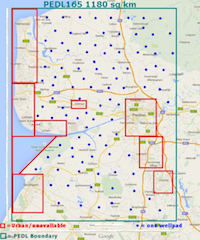Regulation – Red herring or strategic necessity?
This week there has been some discussion on Facebook about whether those opposed to fracking should engage with the issue of regulation, or whether we need to be pure in mind and spirit and refuse to deal with the issue on the grounds that we must not compromise.
To us this issue is perhaps the most important thing that we need to consider as we move, seemingly inexorably towards exploratory fracking in Lancashire.
It is clear that there is a spectrum of opinion amongst those opposed to fracking. At one end we have environmentalists who are implacably opposed to fracking. Their reasons include the impact of any fracking on climate change targets and the damage that it can do to the environment. This position can be supported with ample evidence, but it does not, unfortunately, have huge resonance with the man on the 68 bus between Ansdell and Lytham.
At the other end of the spectrum are local residents who are more concerned with the immediate local impacts of fracking on the amenity value of the area, their house prices and the health of local people.
None of these people are wrong, but at each end of this spectrum we can see diametrically opposed views on the desirability of engaging with regulation.
Here at Refracktion we have considered this issue and have come to the conclusion that whilst refusing to engage with this question on ideological grounds may be a reasonable position in the abstract, it is not a sensible or responsible way of dealing with the real problem that we will be facing here in Lancashire very shortly.
Our first line of defence, of course, is to oppose any fracking at all. We are doing all we can to do that for reasons explained throughout this web site.
If you live somewhere where fracking isn’t about to happen you may have the luxury of remaining true to a dogmatic set of principles, but here, where exploratory fracking is imminent, we need to address this issue and make sure that we have a proper regulatory regime protecting us. So, our second line of defence is to ensure that if fracking does take place (as it appears it now will, at least for exploration) that we are protected as well as we can be. Anna’s road is only a mile from Cypress Point. The tanks are already on the lawn.
It is basic strategic thinking to prepare this second line of defence even if it is not a preferred option. To refuse to do so on ideological grounds and to criticise those who do so would be the equivalent of sticking our heads in the sand. We cannot ignore reality and we must not let ideology stand in the way of ensuring that our homes and families get as much protection as is possible.
If you are in any doubt as to how weak the current regulatory regime, and how much it needs all of us to work to ensure that it is made even remotely fit for purpose is let us point you towards this article in yesterday’s Guardian
http://www.guardian.co.uk/environment/2013/feb/28/shale-gas-lobbyist-urges-disclose-chemicals
in which the Fracking industry’s latest PR puppet UKOOG (UK Onshore Operators Group) suggest that the frackers should voluntarily disclose what chemicals they use. (It should be fairly obvious from that that regulations don’t force them to do so currently!)
Even worse the article concludes that:
The rules were written by a working group that included operating and service companies with input from the Department for Energy and Climate Change, the Health and Safety Executive and the Environment Agency.
But they spell out that “the guidelines are not intended to prevent any organisation from adopting an alternative approach to managing well integrity, fracturing operations or environmental management.
This sounds more like early twentieth century Satanist Aleister Crowley’s invocation “Do what thou wilt shall be the whole of the Law” than a proper regulatory regime doesn’t it?
If you wanted a perfect illustration of the way that energy ministers John Hayes and Ed Davey and local MP Mark Menzies are all asleep at their different wheels you couldn’t find a better one.
In this situation, and with fracking imminent in our part of the country, engaging with the regulatory regime and trying to ensure that we are properly protected is not compromising ideals, it is being realistic, pragmatic and responsible. Failing to do so would be irresponsible and self-indulgent.
We stick to our guns on the point that fracking must not be allowed until a proper, fit for purpose regulatory system is in place. Do we believe that any regulatory regime will offer 100% protection? Of course not – you only have to look at the horse meat scandal in our highly regulated food chain to see that regulation only offers a limited defence against greed and malfeasance, but it is all we have to protect us when our government sells our countryside to the highest bidders.
The regulatory regime is nowhere near fit for purpose as you read this, but the only way to ensure we get one that approaches being so is to engage with the process.






























